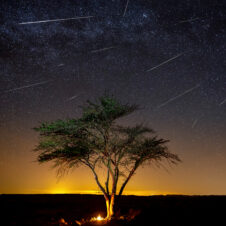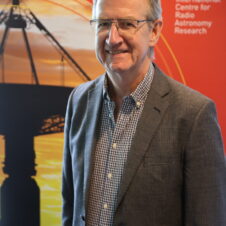AstroQuest has been selected as a finalist in the 2020 Department of Industry, Science, Energy and Resources Eureka Prize for Innovation in Citizen Science.

The AstroQuest Team left to right: Lisa Evans, Aaron Robotham, Cass Rowles, Luke Davies, Simon Driver, Moritz Wicenec, and Samuel Foster. Kirsten Gottschalk is absent.
The Australian Museum (AM) Eureka Prizes are Australia’s leading science awards, rewarding excellence in science. Established in 1990, the AM Eureka Prizes celebrate its 30th anniversary in 2020. Since the prizes first began, more than $4 million in prize money and a total of 416 AM Eureka Prizes have been awarded.
In 2020, there are 17 AM Eureka Prizes to be awarded across four categories:
- Research and Innovation
- Leadership
- Science Engagement
- School Science
“Large astronomy projects generate more data than research teams can deal with, so they lean on computers for results. But, computers sometimes get it wrong. Enter AstroQuest! Citizen scientists check the result, and suggest a fix if it’s wrong. Motivated by quests and information as a reward, AstroQuesters help explore the properties of distant galaxies.”
There are 51 finalists (individuals and teams), in the 2020 Australian Museum Eureka Prizes. Read about the other 2020 finalists. The 2020 finalists are working across the full spectrum of science, from solving global environmental challenges to finding unique solutions to deliver life-saving medication. Each prize is judged by a panel of eminent and qualified individuals, whose contribution of expertise and time helps underpin the credibility of the AM Eureka Prizes.
The 2020 AM Eureka Prizes Award Ceremony will take place on the evening (AEST) of Tuesday 24 November 2020. For the first time in the program’s 30-year history, the 2020 AM Eureka Prize winners will be announced during a live, digital event with an interactive app to allow the online audience to take part in the proceedings. The digital event is open to everyone and is free to attend. Registration will soon be available through the Australian Museum website.
AstroQuest is the successor to ABC Science’s successful Galaxy Explorer National Science Week citizen science project, and was developed with in-kind support from ABC Science.


